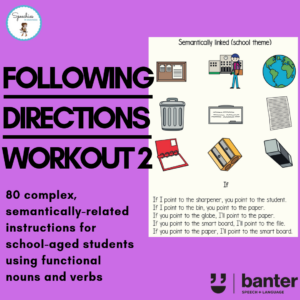(L215) Following Directions Workout 2
$5.99 including GST
In this 15-page no-prep pack, we have selected complex sentence structures frequently used in instructions, including sentences containing the subordinating conjunctions “if”, “when”, “while”, “when”, “don’t/unless”, “don’t/until”, “before” and “after”. To help students, we have sorted objects semantically. To practice, we have selected items based on those used in the student’s real world (e.g. in the classroom).
Description
80 complex, semantically-related instructions for school-aged students using functional vocabulary and if, when, while, unless, until, before and after
The ability to follow instructions like those above is a big advantage. It helps to carry out learning activities and to succeed in tests. It can make you seem more diligent and responsible (especially to teachers, workmates and peers). And it can help you to navigate to new places and to deal with new situations (e.g. high school, or jobs).
Many children and adults struggle to follow multi-step instructions, including many people with developmental language disorders.
Why?
Here are two likely candidates, which often – but not always – occur together:
(a) Working memory limits
Many people with low working memories fail to complete long, multi-step instructions. In particular, children with low working memory abilities struggle to follow instructions in everyday classroom situations (Gathercole et al., 2006).
(b) Oral language difficulties and disorders
(i) Vocabulary and semantic problems:
For example, many kids who are learning English as a second language, and kids with developmental language disorders, do not understand language concepts that many of us take for granted, e.g. words many of use in every day instructions, like “first”, “then”, “before”, “after”, “if”, “except”, “when”, “unless”, “until”, and “while”.
(ii) Complex syntax problems
Many people who are learning English as a second language and people with developmental language disorders have difficulty processing complex sentences, e.g. sentences using the language concepts “before” and “after” and passive sentence structures (e.g. Tell me which girl was chased by the boy.”)
These Practice exercises
In this pack, we have selected complex sentence structures frequently used in instructions, including sentences containing the subordinating conjunctions “if”, “when”, “while”, “when”, “don’t/unless”, “don’t until”, “before” and “after”. To help students, we have sorted objects semantically. To practice, we have selected items based on those used in the student’s real world (e.g. in the classroom).
Tips
Teachers, family members and others can adopt a few, common sense suggestions to make life easier for people who have difficulties following instructions:
- Speak slowly and clearly when giving instructions. Avoid too much background noise.
- Break multi-step instructions into single steps, e.g “Please clean your desk. Now go to lunch”.
- Use the “When…then” technique to replace complex instructions with simpler ones (e.g. instead of “Before you go to lunch, clean up your desks”, say “WHEN you finish cleaning your desk, THEN you can have lunch.”).
- Use actions, modelling, pictures and/or videos to support everyday routine instructions. For example:
- Use actions to accompany your instructions.
- Show students how to complete the task by doing it yourself in front of them.
- Draw simple (e.g. stick figure) comics showing each step of the instruction.
- Make short videos of you carrying out the steps, e.g. on your smart phone, iPad or smartboard.
- If students can read, provide written notes summarising the steps.
- Repeat instructions, using actions words (verbs) as the person is about to carry out the step.
For a longer list of practical tips to help students with language difficulties at school, go here.
Principal sources:
Jaroslawska, A. J., Gathercole, S.E., Logie, M.R., Holmes, J. (2016). Following instructions in a virtual school: Does working memory play a role? Memory Cognition, 44:580-589.
Gathercole, S.E., Durling, E., Evans, M., Jeffcock, S., & Stone, S. (2008). Working Memory Abilities and Children’s Performance in Laboratory Analogues of Classroom Activities, Applied Cognitive Psychology, 1019-1037.


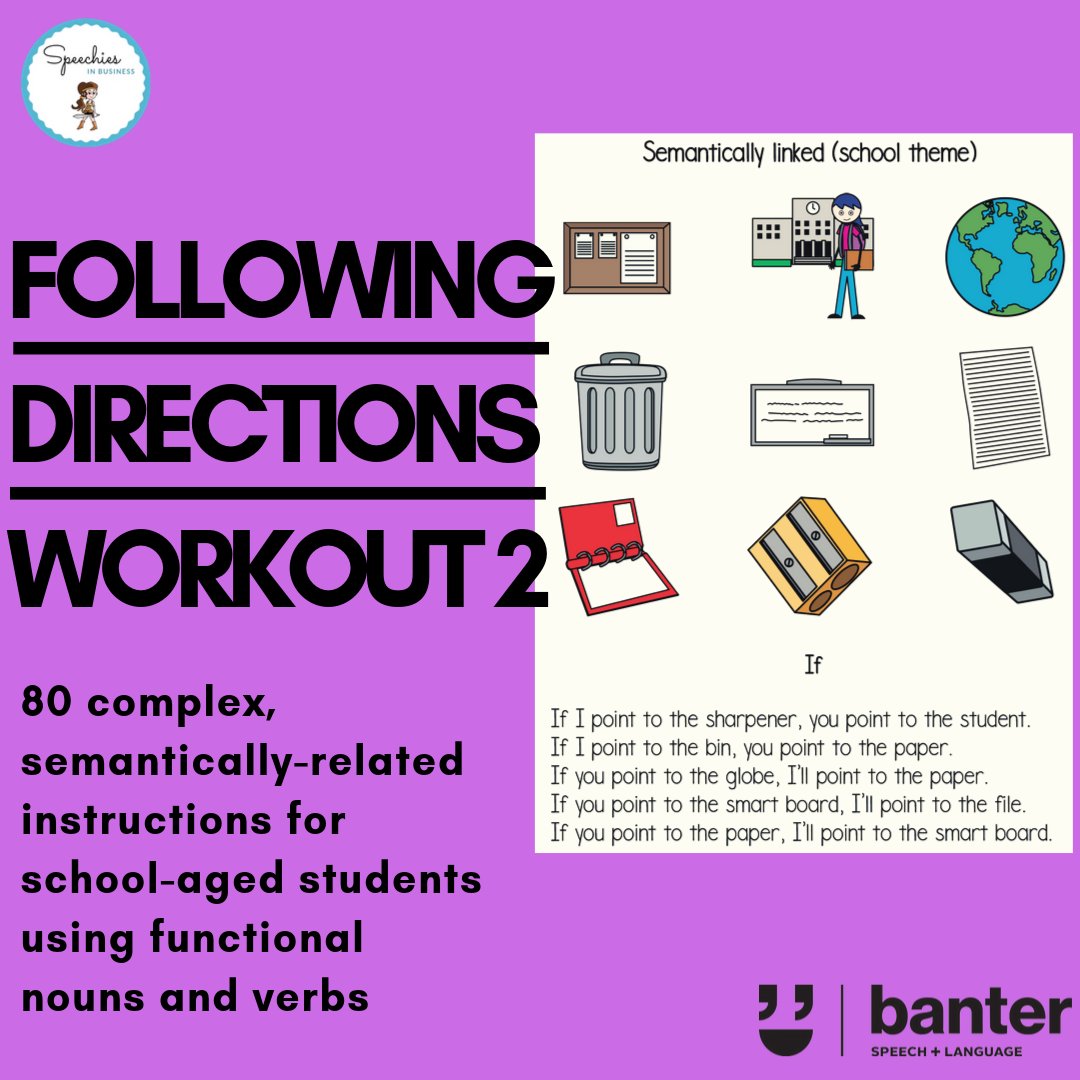



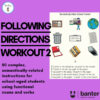

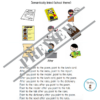
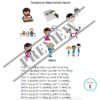

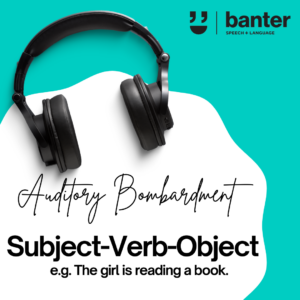
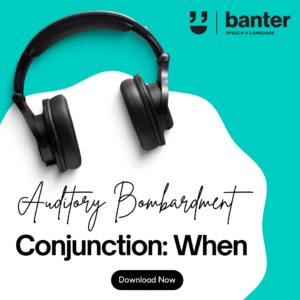
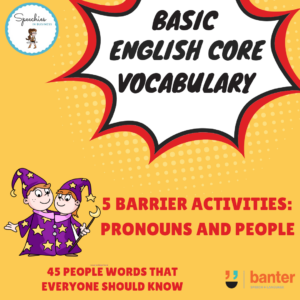
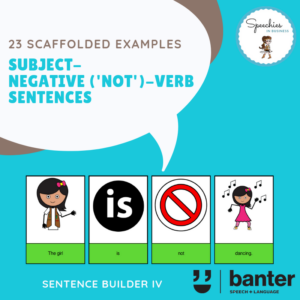
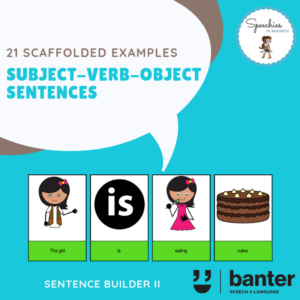 (L119) Subject-Verb-Object (SVO) Sentence Builders
(L119) Subject-Verb-Object (SVO) Sentence Builders 